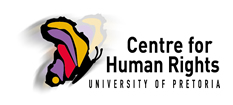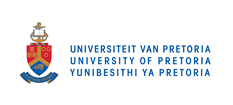
AfricLaw
AfricLaw, launched in April 2012, is a blog which provides a platform for discussion for those interested in the rule and role of law in Africa. All areas of law applicable to Africa are covered, both international (global and continental) and national. Legal academics and students, researchers, international and national civil servants, legislators and politicians, legal practitioners and judges, as well as those who are not lawyers but have an interest in law are among those who are welcome to participate in the discussions. AfricLaw provides a space for the discussion of issues of substance, forming of opinions and information sharing among people living on the continent, those from Africa who are in the diaspora, and anyone else who is interested in participating.
www.africlaw.com

The Centre for Human Rights
The Centre was established in the Faculty of Law, University of Pretoria, in 1986, as part of domestic efforts against the apartheid system of the time.
The Centre for Human Rights works towards human rights education in Africa, a greater awareness of human rights, the wide dissemination of publications on human rights in Africa, and the improvement of the rights of women, people living with HIV, indigenous peoples, sexual minorities and other disadvantaged or marginalised persons or groups across the continent.

Faculty of Law, University of Pretoria
Seen from one perspective, the Faculty of Law consists of staff, students and the building. It is, however, also much more than that: It represents an idea, namely the idea of a society governed by the rule of law and not by individuals. Our Faculty pursues this idea by focusing on the law and on excellence in all divisions of jurisprudence. It is also pursued by focusing on jurists and by preparing our students to become leaders of their communities where they can promote the law and its principles effectively.
www.up.ac.za/law
University of Pretoria
The University of Pretoria is a multi campus public research universityin Pretoria, the administrative and de facto capital of South Africa.The University is organised into nine faculties and a business school. Since 1997, the university has produced more research outputs every year than any other institution of higher learning in South Africa, as measured by the Department of Education's accreditation benchmark. In 2008 the university awarded 15.8% of all masters and doctorate degrees in South Africa, the highest percentage in the country.
